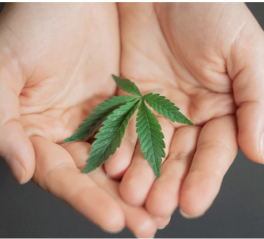Causes / Predispositions
Pain is a result of the body’s natural response to injury or illness. Damaged cells signal the brain, resulting in the sensation of pain. In patients suffering from chronic pain, this signaling can persists beyond the healing time of the initial source of pain. However, in some patients chronic pain may be experienced without any clear cause or injury.
Certain conditions can cause chronic pain, such as:
- Previous Injury
- Back Injury
- Arthritis
- Cancer
- Migraine
- Infection
- Fibromyalgia
- Multiple Sclerosis
- Endometriosis
- Nerve Damage
- Diabetic Neuropathy
- Surgery
Symptoms
Patients experience chronic pain differently in both severity and duration. Chronic pain can at times be constant, or experienced in unpredictable intervals or waves.
Chronic pain sufferers may experience symptoms such as:
- Muscle/Joint Stiffness
- Cramps
- Spasms
- Swelling
- Limited Mobility
- Reduction in Strength
- Reduced Flexibility
- Loss of Stamina
- Nausea/Vomiting
Traditional Treatments
The primary focus of chronic pain treatment is to improve overall pain management to limit its effect on the activities of daily life. Unfortunately, not all patients are successful in treating or permanently alleviating chronic pain.
Chronic pain treatment must be tailored to the specific needs of every patient and will often involve a team of health care providers and chronic pain specialists.
Medications
- NSAIDs (Ibuprofen, Aspirin, Naproxen)
- Opioids (Morphine, Oxycodone, Buprenorphine)
- Paracetamol
- Tramadol
- Muscle Relaxants
- Medicated Topical Creams
- Antidepressants (Amitriptyline, Venlafaxine, Duloxetine)
- Antiepileptics (Gabapentin, Pregabalin)
Additional Treatments
- Regular Exercise (Gentle to Moderate)
- Frequent Stretching
- Physiotherapy
- Occupational therapy
- Relaxation/Meditation Techniques
- Cognitive Behavioural Therapy (CBD)
- Acupuncture
- Injections (Corticosteroid)
- Surgery
Treatment with Cannabis Medicine
The endocannabinoid system plays a role in the body’s pain signalling process, and research indicates that cannabis can suppress pain by activating the CB1 receptors. Studies have also shown that cannabis treatment can result in noticeable improvements in:
- Mobility Pain
- Pain at Rest
- Sleep Quality/Duration
Additional research is needed to fully understand the therapeutic potentials and possible side effects of cannabis as a treatment for chronic pain.
Recommended Intake Method(s)
- Edible Oils – Useful for extended pain management, and as a preventative treatment. Effectiveness limited by slow onset.
- Inhalation via Vaporizer – Useful in achieving immediate breakthrough relief due to fast onset.
Recommended Product Formulations
- Products containing only CBD.
- Products containing only THC.
- Products containing ratios of 1:1 or 1:2 THC to CBD.
Notable Terpenes
- Myrcene – Analgesic, Sedating
- Linalool – Anti-Anxiety, Analgesic
- Caryophyllene – Gastroprotective, Anti-Inflammatory, Arthritis, Ulcers
- Pinene – Anti-Inflammatory, Bronchodilator, Antibiotic, Memory Aid





